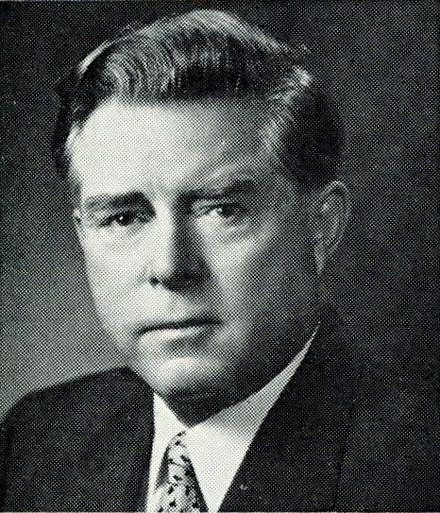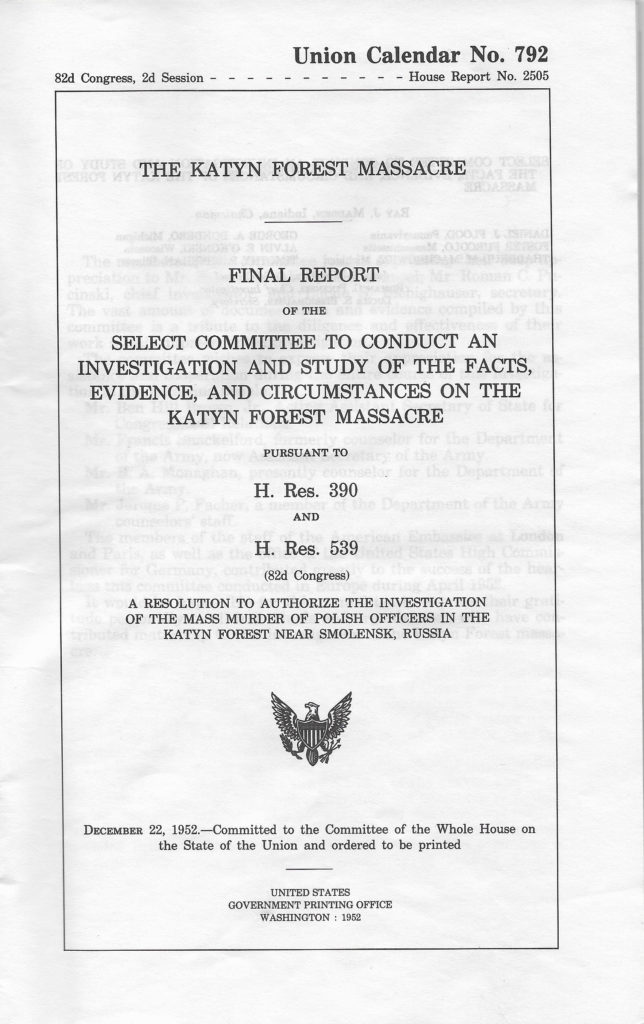In its final report issued on December 22, 1952, the bipartisan Madden Committee of the U.S. House of Representatives condemned pro-Soviet Russia reporting and censorship by the Office of War Information (OWI) and the Voice of America VOA
As the Cold War intensified, Truman and more members of Congress from both parties concluded that the Office of War Information and the wartime VOA broadcasts had been tainted by Soviet propaganda that harmed America’s long-term international reputation, its national interests, and security. The agency was doomed by the incompetence of its leadership, their ideological fascination with Soviet Russia, poor security, which allowed the hiring of Communists and other radicals, and ultimately Stalin’s betrayal of the empty promises he made to Roosevelt and Churchill at Teheran and Yalta to get their approval for border changes and for Russia’s dominance over Eastern Europe. The bipartisan Select Committee of the House of Representatives to Conduct an Investigation and Study of the Facts, Evidence and Circumstances of the Katyn Forest Massacre, also known as the Madden Committee after its chairman Ray J. Madden (D-Indiana), said in its final report released on December 22, 1952:
In submitting this final report to the House of Representatives, this committee has come to the conclusion that in those fateful days nearing the end of the Second World War there unfortunately existed in high governmental and military circles a strange psychosis that military necessity required the sacrifice of loyal allies and our own principles in order to keep Soviet Russia from making a separate peace with the Nazis.1
The committee added:
For reasons less clear to this committee, this psychosis continued even after the conclusion of the war. Most of the witnesses testified that had they known then what they now know about Soviet Russia, they probably would not have pursued the course they did. It is undoubtedly true that hindsight is much easier to follow than foresight, but it is equally true that much of the material which this committee unearthed was or could have been available to those responsible for our foreign policy as early as 1942.2
The Madden Committee also said in its final report in 1952:
This committee believes that if the Voice of America is to justify its existence, it must utilize material made available more forcefully and effectively.3
Members of Congress criticized the Office of War Information director, Elmer Davis, for his role in enabling the spread of Soviet fake news through the Voice of America. Still, later the whole incident was forgotten and became part of the Katyn cover-up. The bipartisan select committee of the House of Representatives, which conducted the investigation of the Katyn Forest massacre, concluded in 1952 that Davis was responsible for repeating false Soviet propaganda through the Voice of America and domestic radio networks in the United States.
Mr. Davis, therefore, bears the responsibility for accepting the Soviet propaganda version of the Katyn massacre without full investigation. A very simple check with either Army Intelligence (G- 2) or the State Department would have revealed that the Katyn massacre issue was extremely controversial.4
Soviet influence over WWII Voice of America
Pressed about charges of communist influence, Davis told the Madden Committee in 1952 that about a dozen Communists were fired from OWI jobs while he was the OWI Director.5 Davis was not as radically pro-Soviet as some of his senior aides. He wanted to avoid unnecessary confrontations with members of Congress. According to U.S. Representative and later Senator Karl E. Mundt (R- South Dakota), Davis issued a statement in 1942, saying that “You can oppose communism in the United States without being disloyal to Russia’s fight against the Nazis. Everyone knows that Russia is a strong ally and hopes that she licks the Germans.” But Davis added that “It is a matter of law that you can’t have Communists in the United States Government and it is a matter of common sense that you don’t want party liners in it either.”
Rep. Mundt praised Davis in a speech in the House of Representatives on July 24, 1942, “Mr. Davis is dead right in his clear-cut distinction between helping the Russians abroad and condoning and encouraging communism at home. The former is in our national interests; the latter leads to our national destruction.”[ref]Karl E. Mundt, “Head of Office of War Information Warns America Against Communist Propaganda,” 77th Congress, Second Session, Volume 88 – Part 9, Congressional Record – Appendix, July 24, 1942, p. A2953.[/ref] Ten years later, in the early 1950s, Davis became one of the most outspoken critics of Senator Joseph McCarthy (R-Wisconsin) for his destructive and futile anti-communist investigations. There were no communist “subversives,” agents, or spies employed by the Voice of America in the early 1950s. They all had left or were forced out – some already during the Roosevelt administration, and the rest were fired or left during the Truman administration.
The Soviets did not take complete control over the Office of War Information and the Voice of America during World War II and in the immediate post-war period, but that was not their intention. They still managed to dupe OWI officials and VOA journalists to support their strategic political goals and to spread their disinformation to Americans and foreign audiences, as the bipartisan Madden Committee of the U.S. House of Representatives concluded in December 1952. Successive managements of the Voice of America have tried hard to ignore the existence of the Madden Committee and its conclusions about the subversion of VOA by propaganda from Soviet Russia during World War II and, to a limited degree, also for several years after the war.
NOTES:
- Select Committee to Conduct an Investigation and Study of the Facts, Evidence and Circumstances of the Katyn Forest Massacre, The Katyn Forest Massacre: Final Report (Washington: United States Government Printing Office, 1952), pp. 11-13, https://archive.org/details/KatynForestMassacreFinalReport.
- Ibid.
- Ibid.
- Ibid., p. 9.
- Ted Lipien, “Voice of America Polish Writer Listed As His Job Reference Stalin’s KGB Agent of Influence Who Duped President Roosevelt,” Cold War Radio Museum (blog), February 12, 2020, http://www.coldwarradiomuseum.com/voice-of-america-polish-editor-listed-stalins-kgb-agent-of-influence-as-job-reference/.




